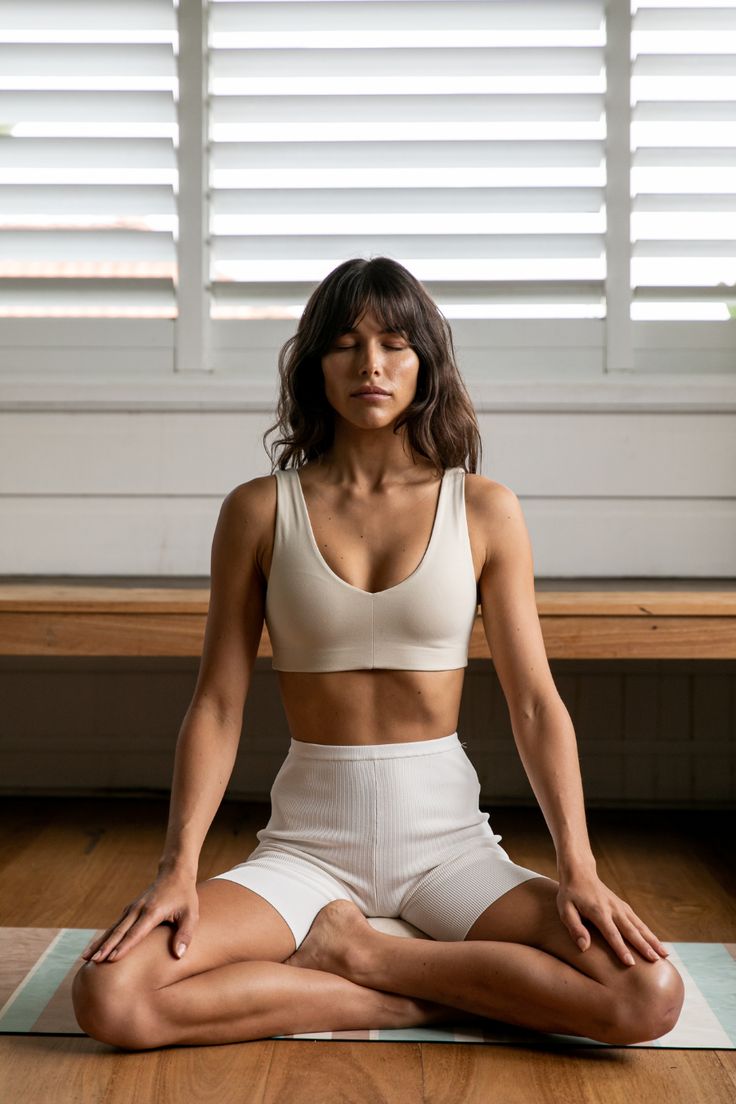
Let’s face it: life can feel overwhelming sometimes. Stress and anxiety seem to have become constant companions for many of us in today’s fast-paced world. I know this all too well. For years, I found myself constantly juggling responsibilities—trying to meet deadlines at work, staying connected with loved ones, and keeping up with the hustle and bustle of everyday life. Somewhere along the way, I lost sight of my own well-being.
I used to push through the stress, convincing myself that I didn’t have time for self-care. “I’ll relax once I finish this project,” I’d say, or “I’ll take a break once things calm down.” But guess what? Things rarely calm down on their own. Instead, I found myself running on empty, and my stress turned into anxiety that I could no longer ignore. It wasn’t until I hit a breaking point that I realized how important it was to prioritize myself—mind, body, and soul.
If this sounds familiar, you’re not alone. We live in a world that glorifies being busy and puts self-care on the back burner. But the truth is, taking care of yourself is not a luxury; it’s a necessity. The good news? You don’t need to overhaul your life or take drastic measures to start feeling better. Simple, consistent acts of self-care can make a profound difference in managing stress and anxiety.
In this blog, I want to share with you some self-care practices that have helped me regain my balance, find calm in the chaos, and manage my anxiety in a healthy way. These are things you can do right now, without needing a lot of time or resources. You deserve to feel good—physically, mentally, and emotionally—and these tips are designed to help you get there, one step at a time.
So, let’s embark on this journey together. Whether you’re feeling overwhelmed at work, navigating personal challenges, or simply looking for ways to improve your overall well-being, these self-care strategies can help you create moments of calm in your life. Remember, you don’t need to do it all at once. Just start where you are, and let these small acts of self-care guide you toward a healthier, more peaceful state of mind.
Take a deep breath—we’ve got this.
Table of Contents
Toggle1. Breathe—Literally
It might sound too simple to be true, but the act of consciously breathing can change everything. When I feel anxiety creeping up, my breathing tends to get shallow and quick, which only adds to the panic. If you’ve ever been in that place, you know how important it is to control your breath. Here’s a breathing exercise that works for me:
- The 4-7-8 Breathing Technique: Inhale deeply through your nose for 4 counts, hold your breath for 7 counts, and exhale completely through your mouth for 8 counts. Repeat this four times. It’s a quick reset button.
This technique calms the nervous system and grounds you in the moment, offering instant relief. It’s like telling your body, “You’re safe, you can relax.”

2. Limit Screen Time and Go on a Digital Detox
I remember a time when I would scroll endlessly on social media, especially during anxious moments. But I realized it was feeding my stress rather than helping it. Our devices keep us constantly stimulated, and it’s easy to get lost in the comparison game. A digital detox can feel like a breath of fresh air.
- How to Start: Set aside one hour before bed as screen-free time. Use that time to read, journal, or simply relax with a cup of tea. You’d be amazed at how peaceful it feels to disconnect and be present with your thoughts.

3. Move Your Body, Release the Stress
Whenever I’m feeling weighed down by stress, moving my body—even just a little—helps me shake it off. Exercise doesn’t have to be intense to make a difference. Simple activities like walking, stretching, or even dancing around your living room can release endorphins (our natural stress relievers).
- Try This: Put on your favorite playlist and dance like no one’s watching. Even if you’re not a dancer, just letting loose can feel liberating and fun. It’s a playful way to get your heart rate up and put stress in its place.

4. Mindfulness: Be Here Now
For years, I misunderstood mindfulness as sitting still and trying to stop my thoughts. But I learned it’s about noticing the present moment without judgment. Whether it’s sipping your morning coffee, taking a walk, or even washing dishes—just be fully there. Anxiety often stems from worrying about the future, and mindfulness brings us back to the present.
- Mindful Moment: Next time you have a cup of coffee or tea, take five minutes to savor it. Focus on the warmth, taste, and smell. This small act of mindfulness can make a big difference.

5. Embrace the Power of Nature
Whenever I’m feeling anxious or overwhelmed, stepping outside into nature always works wonders. There’s something about being surrounded by trees, hearing birds, or even just feeling the sun on my skin that brings instant calm.
- Nature Therapy: Take a 15-minute walk outside, sit by a window with fresh air flowing in, or simply step out to your balcony for a few deep breaths. Nature has a calming effect on our nervous system and can help put things in perspective.

6. Establish a Morning Routine
I used to wake up, grab my phone, and dive straight into my day without a second thought. It wasn’t until I started setting aside time for a mindful morning routine that I noticed how much better I felt throughout the day. Establishing a few simple practices in the morning can set a calm and intentional tone for the day ahead.
- Simple Morning Ritual: Upon waking, spend a few minutes stretching, meditating, or writing in a journal. Light a candle, play soft music, or enjoy a few quiet moments before the day’s busyness begins. This helps you start the day with a sense of peace, rather than anxiety.

7. Eat for Your Mind and Body
What you eat affects how you feel, and I’ve noticed this firsthand. When I’m stressed or anxious, I tend to crave comfort foods that are high in sugar or carbs. While it feels good in the moment, it often leads to a crash later. Incorporating plant-based, whole foods in your diet can provide the nutrients your brain and body need to cope with stress.
- Plant-Based Power: Try adding more fruits, vegetables, and whole grains into your meals. Leafy greens like spinach and nuts like almonds are rich in magnesium, which can help reduce anxiety. Smoothies with a blend of berries, spinach, and chia seeds can be a quick, nourishing option that boosts both mood and energy.

8. Set Healthy Boundaries
I used to struggle with saying “no” and would often take on too much, leaving me feeling stretched thin and anxious. Learning to set healthy boundaries in both personal and professional relationships has been one of the most empowering self-care practices I’ve adopted.
- How to Set Boundaries: It starts with knowing your limits and honoring them. If you need time for yourself, don’t hesitate to politely decline invitations or say no to additional work. You don’t have to explain yourself; your well-being comes first.

9. Write It Out: Journaling for Mental Clarity
Journaling has been a life-saver for me when it comes to managing anxiety. There’s something incredibly therapeutic about putting thoughts on paper. It helps you process your emotions, clear your mind, and gain perspective.
- How to Start: Begin with just five minutes a day. Write about what’s bothering you, what’s on your mind, or even things you’re grateful for. If you’re feeling stuck, try prompts like, “What am I anxious about right now?” or “What’s one thing I can do today to take care of myself?”

10. Lean on Your Support System
One of the hardest things about dealing with stress and anxiety is feeling like you have to go through it alone. But I’ve learned the importance of reaching out to loved ones during tough times. Talking to a trusted friend or family member can be incredibly comforting and healing.
- Open Up: Next time you’re feeling overwhelmed, call or text someone you trust. You don’t need to have all the answers or even talk about your problems in detail. Just sharing a part of your experience can help lighten the load.

11. Make Time for What Brings You Joy
With so much to do, it’s easy to forget the simple things that bring us joy. Whether it’s reading a book, painting, baking, or even watching your favorite TV show—taking time for hobbies is a form of self-care that can rejuvenate your soul.
- Schedule Joy: Make it a point to do one thing every day that brings you happiness, no matter how small. It could be as simple as listening to your favorite song or spending time on a hobby you enjoy.

12. Get Enough Rest: Sleep Is Your Superpower
I’ve been guilty of burning the midnight oil in the name of productivity, but the truth is, lack of sleep only worsens anxiety. Prioritizing a good night’s rest is essential for both mental and physical well-being.
- Create a Sleep Sanctuary: Make your bedroom a relaxing environment. Turn off screens at least an hour before bed, use calming essential oils like lavender, and try to keep a consistent bedtime. Your mind and body will thank you.

13. Practice Gratitude
When I’m stressed, I’ve found that shifting my focus to the things I’m grateful for helps put things in perspective. Gratitude doesn’t erase challenges, but it can remind you of the good things that coexist alongside them.
- Gratitude Practice: Every day, write down three things you’re grateful for. They don’t have to be big; it could be as simple as having a warm cup of tea or receiving a kind message from a friend. This simple habit can shift your mindset and help reduce anxiety over time.

14. Seek Professional Support if Needed
If you find that your stress or anxiety feels unmanageable, there’s no shame in seeking professional help. Therapy has been an incredibly valuable tool in my self-care journey, helping me understand my triggers and develop coping mechanisms.
- Therapy: Whether it’s talking to a licensed therapist, counselor, or life coach, getting external support can make a world of difference. Sometimes, it’s exactly what you need to get to the root of your anxiety and develop strategies to overcome it.

Final Thoughts: It’s Okay to Put Yourself First
If there’s one thing I’ve learned in my own journey with stress and anxiety, it’s that self-care isn’t selfish. It’s necessary. We’re often so focused on taking care of others or meeting societal expectations that we forget about ourselves. But you can’t pour from an empty cup.
So, take time today to incorporate even one or two of these self-care tips into your routine. You deserve to feel good, to be at peace, and to live with less anxiety. Remember, self-care isn’t about grand gestures; it’s about small, consistent acts of kindness toward yourself.
Take a deep breath—you’ve got this.